Jefferies Healthcare Temperature Check
2024

Foreword
by Tommy Erdei
Global Joint Head of Healthcare Investment Banking
I am delighted to share the seventh edition of the Jefferies Healthcare Temperature Check, our annual report that explores the issues at the top of the healthcare agenda. Capturing a record number of views from senior leaders and investors from across the global healthcare sector, the report and its findings act as an essential source of insight to complement the information-sharing and connections we can expect at our London Healthcare Conference.
It has been another challenging year for global markets, characterised by a higher-for-longer interest rate environment, continued geopolitical instability and democratic uncertainty with almost half of the world’s population voting in national elections – more than ever in history. However, Healthcare has again demonstrated its ability to adapt, innovate and prove its resilience.
Advances in GLP-1 drugs have erupted onto the world stage. Versus some uncertainty last year, our respondents now have strong conviction that these drugs are here to stay – and that they will make a seismic impact on global healthcare. At the same time, technology is unlocking new, groundbreaking treatments, diagnostics and approaches to healthcare – with more use-cases for how AI can turbocharge and optimise efficiency.
It is therefore unsurprising – but nevertheless pleasing – that this year’s report shows a noticeable uptick in confidence for the sector as we look ahead. This confidence is reaffirmed by the elevated investment activity across the market towards the end of this year, indicating that we have turned a corner. The outlook is especially bullish on Mid- and Small-Cap Pharmaceuticals, which is where investors see the greatest opportunity going into 2025.
Capital constraints continue to be a cause for concern for the industry, following a year of continued unsupportive market conditions – but the urgency has abated. Less than half of respondents say the macro environment is having a major adverse effect on their ability to raise capital, down from 68% last year. This optimism is demonstrated in clearer confidence in the IPO market, with nearly two thirds of respondents expecting a more active IPO pipeline in 2025 than 2024, up from under half last year.
There is also confidence that M&A levels will rebound, with 72% of respondents expecting dealflow to be higher in 2025 than 2024, driven primarily by corporate-led activity, and with Institutional Investors the most bullish.
We invite you to view the full survey, which we hope you find an interesting read – and which is supported by videos demonstrating the views of our Healthcare bankers and analysts. I personally thank you for your continued support for the London Healthcare Conference.

Detailed Findings
The Market Outlook
Expectations for the FTSE 100 Index in 2025
After sustained macro pressures, our respondents finally appear to be calling the turn in the market, marked by optimism in their expectations for the FTSE 100 in 2025. Two thirds of respondents think the index will be higher by the end of 2025, up from just under half last year. The number of bears has also decreased, with only 8% expecting the FTSE 100 to be lower, versus 22% last year. Institutional Investors were the biggest swing voters, from 27% fearing it would be lower in 2024, to just 9% thinking the same for 2025, demonstrating their optimism in the market outlook.
0%
Expect the FTSE 100 to be higher at the end of 2025
0%
of institutional investors believe that the MSCI World Health Care Index will be higher at the end of 2025
Expectations for the MSCI World Health Care Index in 2025
Last year’s optimism for the MSCI World Health Care Index was well-founded, and preceded a strong performance for the index this year. Looking ahead, respondents in this year’s report are indicating even higher levels of confidence in the sector, with 73% expecting the MSCI World Healthcare Index to end higher by the end of 2025, up from just over half of respondents last year. Institutional Investors are the most bullish, with 94% expecting it to be about the same or higher.

Detailed Findings
Bullish on Healthcare
Optimism for the healthcare sector is translating into a continued expectation to increase exposure, in line with appetite last year. 46% of respondents expect their exposure to the sector to be higher in 2025, with only 2% expecting to reduce their weighting. Again, Institutional Investors are the most optimistic, with 51% expecting to increase their exposure in 2025.
0%
46% expect their exposure to the healthcare sector to be higher in 2025

Detailed Findings
The Global Economy: A Mixed Picture
0%
say the economic environment and outlook is having a ‘major adverse impact’ on the ability of healthcare companies to raise capital
Capital Constraints
Availability of capital has been a critical theme for the past two years. Whilst it continues to be high on the agenda again this year, there are green shoots of optimism about the macro economy that indicate the worst of the funding crisis might have passed.
Whilst 48% of respondents say the inability to raise capital is having a major adverse effect, this is down from a critical majority of 68% last year. Healthcare companies remain the most cautious, with 51% saying it is having a major adverse effect; however, this is down from 70% last year.
The tempered caution is reflected in a larger group indicating it is having a small adverse impact (at 44%, up from 27% last year).

Detailed Findings
Geographies and Sectors
Geographic Allocation
North America continues to drive our respondents’ interest and appetite. This year it is an even more popular destination for investment, viewed as the market in which there will be the biggest opportunity – selected by 74% of participants, up from 69%. Healthcare companies are particularly bullish on the region (78%).
Appetite for the UK is broadly in line with last year, with a minor decrease in those selecting it as the biggest opportunity to 18% (20% in 2024, which does not reflect well on business sentiment for the new government).
Interestingly, 36% selected Europe (43% last year, with worsening Institutional and Private Equity appetite both driving this).
Amid ever-more complex global tensions, China has recovered slightly from last year, with 16% of respondents highlighting it as the market in which they see the biggest opportunity, up from 12% in 2023.
0%
50% of private equity respondents identify Europe as a region of value opportunity for the healthcare sector
0%
54% select Mid- and Small-Cap Pharma & Biotech to be the best-performing healthcare sub-sector in 2025
Best Performing Sub-Sectors
Developments in the market have changed the sub-sectors which respondents see as most likely to perform best in the year ahead. Mid- and Small-Cap Pharma & Biotech is where investors see the greatest opportunity (54%). It benefits from a shared confident outlook from Institutional Investors, Private Equity and Healthcare Corporates themselves.
The outlook for Large Cap Pharma is much more muted, with only 15% selecting it as the most likely sub-sector to perform best. Versus last year, Tools and Diagnostics has come off the boil, from 13% viewing it favourably to just 5% this year.
Healthcare IT is one to watch, increasing from 7% to 12% in this year’s report, showing a positive trajectory.
Supply chain pressures persist but are not top of the agenda
Global supply chain pressures have not eased, remaining a background theme on respondents’ agendas.
36% express concerns (30% state they are ‘somewhat’ concerned and 7% that they are ‘very concerned’) about the business impact of supply chain issues, consistent with last year and down from 59% in the flashpoint of 2022. Private Equity is the least concerned, with 72% expressing ‘no major concern’ or ‘no concern’ at all.
0%
72% of private equity investors have no major concerns or concerns at all about the business impact of global supply chain pressures

Detailed Findings
Spotting the Risks
0%
40% identify geopolitical risk as the greatest risk facing the sector
After a year, geopolitical risk has leapt up the agenda – with 40% highlighting it as the greatest risk, up from 26% last year. Both Institutional Investors and Private Equity are worried about it in equal measure – and with Corporates (44%) most worried of all.
Funding and pricing cuts continue to be a concern, and were a narrow second choice by respondents as the greatest risk to the sector. 36% selected it, up from 33% who were worried about a lack of funding last year. Private Equity is particularly bearish on funding and pricing cuts, with 55% selecting it.
Interestingly, only 2% see cybersecurity as the biggest risk.

Detailed Findings
Dealmaking in 2025
A comeback for deals in 2025?
2024 was slow to demonstrate a recovery in dealmaking, as a result of geopolitical tensions and a higher-for-longer interest rate environment – but it is finally picking up. This optimism is demonstrated in the 72% of respondents who think M&A will be higher next year than this year, with Institutional Investors and Corporates more bullish versus last year.
Very few (4%) think it will be lower than last year, in a further sign of respondents signalling that we are over the worst of market conditions and that there is appetite to get deals done.
0%
72% of all participants expect healthcare M&A levels to be higher in 2025
0%
20% expect equity raising and the number of IPOs to be higher next year
IPOs make a comeback in dealmaking activity
Is the IPO market coming back? 20% expect equity raising and IPOs to dominate transactional activity next year, versus just 6% who said the same last year – and up from the lows of 1% who had confidence in this area of the market in 2022. In fact, this makes 2024 the most bullish outlook for IPOs since we began this survey in 2018, which bodes well for companies looking to come to market. There was a notable uptick across Private Equity, Institutional Investors and Corporates in particular.
Expectations for Corporate-led M&A have waned versus last year, but are still expected to dominate (49% this year versus 60% last year). Private Equity, Institutional Investors, and the Corporates themselves, are aligned in this dropping down the to-do list.
Expectations for Private Equity-led M&A remain consistent with the last few years (17% this year versus 16% and 15% in 2023 and 2022 respectively) – and down from the higher 24% in 2021. Debt refinancing was very low down the agenda (3%), alongside restructurings (3%).
Will the IPO market return?
There is much more conviction that we will start to see companies coming to the public markets in 2025, with 64% expecting IPO levels to uptick, versus 43% last year. Private Equity is the most bullish, perhaps looking at a build-up of exits across their portfolios, at 69%. Corporates themselves are similarly looking at a return of the public markets, with 64% expecting more IPO activity next year. It will be one to watch.
0%
69% of private equity respondents predict a return for the IPO market

Detailed Findings
Biopharma Innovation
0%
36% say anti-obesity medication will have the biggest impact in 2025 on innovation in Biopharma
Unsurprisingly, anti-obesity medication has captured the attention of the world, with a clear majority, 36%, of our respondents selecting it as the area of innovation within Biopharma that is expected to have the biggest impact. The appetite is more pronounced across both Institutional Investors (42%) and Private Equity (44%) than Corporates (33%).
Target therapies and artificial intelligence have both seen a considerable drop in interest. Just 16% of respondents expect target therapies to have the biggest impact, down from the 35% of respondents who selected this last year. While 20% of respondents believed A.I. would have the biggest impact within Biopharma last year, just 8% thought so this year.

Detailed Findings
The market for GLP-1 is here to stay, but a question mark remains over the risks attached
Respondents are clear in their assertion that weight loss drugs are going to continue to be a meaningful market for some time. 47% of respondents said that it will be very large and with long-term sustainability, up from a more unsure 33% last year. This conviction was shared across Institutional Investors, Private Equity and Healthcare Corporates.
However, as with last year, 35% of participants are mindful that amidst all the excitement, there are substantial risks that could deflate the market. As we learn more about the drugs, the number of respondents who consider there to be too little information available to make up their minds has reduced – down almost half from 32% in 2023 to 18% in 2024.
0%
47% say the GLP-1 market is very large with long-term sustainability.

Detailed Findings
AI’s impact on the healthcare sector is tangible, particularly for monitoring and predictive analytics
0%
69% of respondents agreed that AI is already having a tangible impact on the sector as a whole
A meaningful 69% of respondents agreed that AI is already having a tangible impact on the sector as a whole – though most are not fully convinced, with 51% saying they ‘slightly’ agreed, versus the lower 18% who ‘strongly’ agreed, and 28% disagreeing altogether. Sceptics are particularly prevalent amongst the Institutional Investor group (46% of whom either disagree or are unsure).
Health monitoring and predictive analytics are the areas where people see AI playing the most transformative role. 37% of respondents highlighted this use-case, with Corporates particularly excited about the potential (41%).
Administrative efficiency (highly important, if not the most glamorous) was the second most cited response, at 19%. This had the edge over more sophisticated use-cases such as genomics and personalised medicine (14%) and drug delivery and development (15%).
0%
Health monitoring and predictive analytics are the areas where people see AI playing the most transformative role

Gil Bar-Nahum
EMEA Head of Biotechnology
Investment Banking

James Vane-Tempest
Specialty Pharma & Healthcare Services Analyst

Peter Welford
European Pharmaceuticals & Biotechnology Analyst

Jefferies: A Leader in Global Healthcare Investment Banking
- Jefferies is a global full-service investment banking and capital markets firm offering M&A advisory, equity and debt capital markets, and equities and fixed income sales, trading and research across North & South America, EMEA, Asia, and Australia
- Jefferies has one of the largest healthcare investment banking groups in the world with over 130 healthcare bankers worldwide
- Jefferies is the #1 advisor across global healthcare M&A, equity transactions and LBO financing (1)
- In the last five years, Jefferies has announced over 650 M&A advisory, bookrun equity and leverage finance healthcare transactions (2)
Sources: (1) Dealogic. (2) Dealogic, transactions completed since 2019.
Number of Global Transactions Announced (LTM September 2024)
300+
Across M&A, DCM and ECM
Number of EMEA Transactions Announced (LTM September 2024)
90+
Across M&A, DCM and ECM
Global Healthcare Transactions
-
HealthcareJul-2024
 $1,630,000,000Sale to Mankind PharmaJoint Financial Advisor
$1,630,000,000Sale to Mankind PharmaJoint Financial Advisor -
HealthcareJun-2024
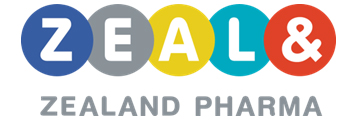 $1,000,000,000Common Stock OfferingJoint Global Coordinator and
$1,000,000,000Common Stock OfferingJoint Global Coordinator and
Joint Bookrunner -
HealthcareMay-2024
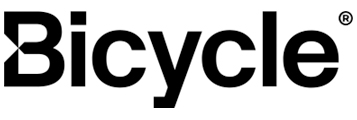 $555,000,000Private Placement of EquitySole Placement Agent
$555,000,000Private Placement of EquitySole Placement Agent -
HealthcareJun-2024
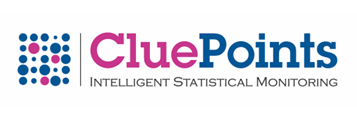 UndisclosedSale to EQTSole Financial Advisor
UndisclosedSale to EQTSole Financial Advisor -
HealthcareMay-2024
 UndisclosedSale to Novo HoldingsSole Financial Advisor
UndisclosedSale to Novo HoldingsSole Financial Advisor -
HealthcareMay-2024
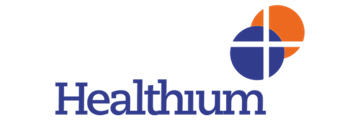 UndisclosedSale to KKRSole Financial Advisor
UndisclosedSale to KKRSole Financial Advisor -
HealthcareApr-2024
 UndisclosedSale to Kühne Holding AGSole Financial Advisor
UndisclosedSale to Kühne Holding AGSole Financial Advisor -
HealthcareApr-2024
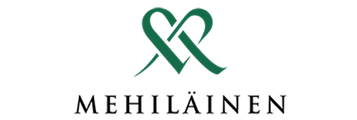 €1,360,000,000Amendment and Extension of Credit FacilityJoint Physical Bookrunner
€1,360,000,000Amendment and Extension of Credit FacilityJoint Physical Bookrunner -
HealthcareMar-2024
 $2,325,000,000Sale to Ingersoll RandJoint Financial Advisor
$2,325,000,000Sale to Ingersoll RandJoint Financial Advisor -
HealthcareMar-2024
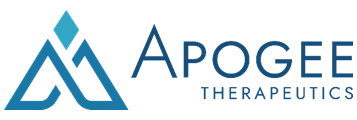 $483,000,000Common Stock OfferingLead-Left Bookrunner
$483,000,000Common Stock OfferingLead-Left Bookrunner -
HealthcareMar-2024
 $213,000,000Sale to AbbVieSole Financial Advisor
$213,000,000Sale to AbbVieSole Financial Advisor -
HealthcareJan-2024
 $450,000,000Common Stock OfferingLead Left Bookrunner
$450,000,000Common Stock OfferingLead Left Bookrunner -
HealthcareJan-2024
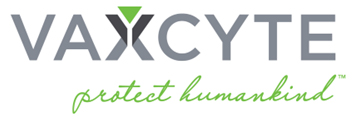 $863,000,000Common Stock OfferingJoint Bookrunner
$863,000,000Common Stock OfferingJoint Bookrunner -
HealthcareJan-2024
 UndisclosedSale to EQTSole Financial Advisor
UndisclosedSale to EQTSole Financial Advisor -
HealthcareOct-2023
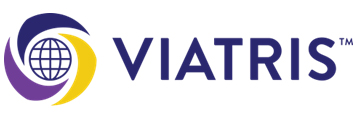 $2,170,000,000Sale to OTC Assets to Cooper Consumer HealthSole Financial Advisor
$2,170,000,000Sale to OTC Assets to Cooper Consumer HealthSole Financial Advisor
Jefferies Financial Group Inc. is the largest independent, global, full-service investment banking and capital markets firm headquartered in the United States. Focused on serving clients for nearly 60 years, Jefferies is a leader in providing insight, expertise and execution to investors, companies and governments. Our firm provides a full range of investment banking, advisory, sales and trading, research and wealth management services across all products in the Americas, Europe and Asia. www.jefferies.com
IMPORTANT: You must read the following before reading, accessing or making any other use of this publication. In accessing this publication, you agree to be bound by the following terms and conditions. This document is being furnished for informational purposes only and does not constitute an offer to sell or the solicitation of an offer to purchase any security or other financial instrument or product. It is not intended to form the basis of any investment decision. Jefferies International Limited and its affiliates (together “Jefferies”) makes no representation as to the accuracy or completeness of the information contained herein or any other information, whether written or oral, made available. Jefferies disclaims all and any liability whatsoever, whether arising in tort, contract or otherwise, for the contents of this publication. You acknowledge that Jefferies does not owe you or any other person or entity, any fiduciary or similar duty as a result of the publication of this report, and Jefferies is not providing any advice, including with respect to legal, tax, accounting, investment or regulatory matters, in any jurisdiction.









